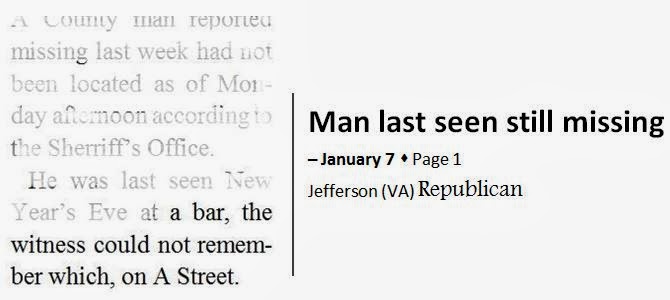 January 31, 2013
January 31, 2013Deprepucation blues
Luke 2:21-24
needs an exceptionally experienced, skillful, and paranoid exeisorcist (See "Definitions," January 8.), one that can find demons that may or may not be there – in the
passage, in himself.
The circumcision
demon:
Why are the Jews lopping off the heads
of their hammers? Because God told
Abraham to do his. (Genesis
17:9ff.) God also told him to take the
head off his son Isaac; but in the case of the boy God stayed Abraham’s hand,
in the case of the buoy, not so much.
Of course, if you can somehow convince others to be mean to their own ends . . . .
See Genesis 34:13-29, the defeat of Hamar and Schechem and all of their
house “on the third day, when they were quite sore” by just two of Dinah’s
brothers, Simeon and Levi, who “took their swords and . . . killed them all.”
(34:25)
The naming demon.
Like good Muslims, Mary and Joseph submit and name the boy ’Ihsou~v –
what the angel said: “Don’t be afraid. Good news. You’re going to be
pregnant, if you’re not already. It’s a
boy, Jesus. That’s what you’re going to
call him. The next David.” Every Jewish mother’s dream, “the next David.”
Mary does have one fair question: how? “You know I’m not sexually active. And if I were, I’d take precautions.”
“One:” the angel says, “no matter; and two: no precaution against this. Zeus and Danäe?”
Mary remembers. One of her cousins had a reproduction of the Jan
Gossaert painting in her bedroom. (We
don’t have it on the blog, because my mother disapproves, but click here. It
looks peaceful. Danäe looks lovely, both
unrumpled and ecstatic. “Okay,” Mary says. And she submits. Nor in her
unrumpled ecstasy does she forget the name.
And Joseph agrees, because the angel of God has said so. “And at the end of eight days, when he was
peritome’ed [pron.
peri-tomayed],
he was called Jesus.”
The
purification-business demon.
This has to do with Levitical
law. (Leviticus 12:2-8) But what does it have to do with Mary and
Baby Jesus. Mary was only “with” the
Spirit. She delivers The Airy Christ, according
to the Proto-evangelium of James, without so much as the slightest tear. He is all baby, no blood. So there is no need for purification, to lop
off (this time) the heads of pigeons.
Then, why would any of them want to
take part in the baptism. (See January
9.)
Y
W











